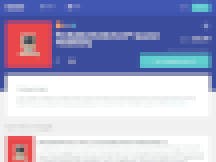Content may be king. But distribution determines the fate of kingdoms. For decades, print textbook publishers have owned K-12 distribution channels, usually through fleets of sales representatives that hone relationships with schools and districts.
Digital distribution and getting online materials directly to consumers, on the other hand, has proven tougher to crack. Traditional publishers have struggled to make the print-to-digital transition, a pivot that in some cases have involved axing staff and bankruptcy.
Now, Quizlet wants to test whether it can offer content providers that distribution channel—and upend how publishers reach consumers online.
Last summer, the San Francisco-based company invited several dozen educational publishers and organizations to create and sell materials to Quizlet users, as part of a closed beta program. Today, the company announced it is inviting any content creator, including individual educators, to apply for its Premium Content program.
Founded in 2005, Quizlet has become a popular source among students for its user-generated digital flashcards. To date, more than 300 million of these study sets have been created. And the company regularly ranks in the Top 10 lists for downloads in the educational category in Apple’s and Google’s app stores.
By opening up its platform to established authors and publishers, the company is betting that content creators will pay to access the massive user base that Quizlet has amassed over the years. In October, the company claimed that 50 million students use it at least once a month.
In order to sell premium materials on Quizlet, one must first apply and be approved as a “Verified Creator.” The process includes a thorough review of the credentials of prospective content creators, and whether they can prove that their published materials are already used in educational institutions.
So far 30 such content creators have been green-lighted, ranging from high-school teachers and college professors, to digital education companies like Babbel and brand-name publishers including Kaplan, Penguin Random House’ Living Language, Oxford University Press and Pearson, which is selling a handful of English vocabulary materials. Most of the materials currently available come in the form of pre-packaged flashcards and study sets, which users can purchase. The marketplace will also support other content formats, including questions and item banks aligned with textbooks, online courses, standardized tests and certifications.

“Pearson is always looking for partnerships that make our content and course materials accessible to more learners and teachers,” wrote Pedro Rodrigues De Vasconcellos, vice president of global product marketing for Pearson’s English division, in an email. He noted that the publishers’ English titles were among the most frequently-searched terms on Quizlet, a sign that “our students were already using Quizlet, and looking for our content.”
“The publishing industry has been the leader of taking high-quality information and creating distribution channels to reach people, historically through their textbooks,” says Quizlet CEO Matt Glotzbach in an interview. But for digital content, he believes “publishers increasingly look at Quizlet as a way to grow their reach and get a global audience.”
Quizlet users can go to the Verified Creator page to see what’s available for sale. More likely, they’ll encounter these materials as recommended purchases. The company claims it can predict what users may need or want to study next, based on data collected about their study habits. And much like how marketplaces like Amazon leverage user data to surface purchase suggestions, Quizlet plans to do the same as users flip through their study sets.
Premium content creators set their own prices and get to keep a “majority” cut of the sale, says Glotzbach. So far these materials range from $0.99 for a study set, and up to $60 for a study guide (best described as a package of study sets). To date, a “few thousand transactions” have been made, although he declined to offer more specific details.
Marketplaces: A Tough Market
Quizlet is not the first, and is hardly alone, in its endeavors to create an online marketplace for educational content. Companies large and small have tried their hands; just three years ago, EdSurge tallied more than a dozen similar platforms. Today, the graveyard of K-12 edtech marketplaces is littered with stalled attempts, many from companies that are no longer around.
“Collecting a lot of resources is easy. Collecting good resources is hard. Getting people to know that good resources exist and pay for them is the hardest thing,” says Adam Bellow, co-founder of Breakout EDU. Bellow previously founded eduClipper, a platform that functioned much like Pinterest but tailored for teachers to share instructional resources. In 2015 eduClipper experimented with creating a marketplace to let teachers to buy and share materials, only to pull the cord shortly afterward.
Among the challenges Bellow encountered was a glut of freely-available content already available on the web—some of which was of a higher quality than those offered for sale. “The big worry in any marketplace is the quality of the content,” he says. Without a proper vetting system in place, these platforms can easily surface materials that are “very nice, polished-looking garbage.”
For small companies, wooing brand-name creators to these platforms can be a challenge. Without a robust user base, most publishers would rather use their own distribution channels (or create them in-house), especially since marketplace platforms take a cut of all sales, says Adam Pearson, co-founder of GlimpseK12 and a former director at Chalkable, which gave this idea a shot in 2013.
But a large teacher following is no guarantee of success. That’s a lesson that the team behind Edmodo, a classroom management and collaboration platform, quickly learned. One of its first revenue-generating efforts was to build an app store where teachers could buy content directly from companies. That was a short-lived project, as company executives quickly learned that few teachers had the authority or money to buy digital materials for their class.
Even traditional education publishers have tried, only to pull back. In 2016, Houghton Mifflin Harcourt announced plans to launch a marketplace where teachers, developers, companies and even students would be able to buy and sell educational materials. But the publisher decided to shutter the platform earlier this year. (It did not respond to request for comment at the time of writing.)
For all the failed attempts, there are a few pockets of success. The most notable is Teachers Pay Teachers, an online destination where educators can sell lesson plans and instructional materials. The company claims it has more than three million resources up for sale, and has helped generate millions in sales for some teachers.
Quizlet’s Test
In the past, upstart education companies used to turn to publishers to help with distribution. Now that relationship may be flipping.
For its marketplace to work, Quizlet is hoping that its mix of brand recognition, audience reach and AI-supported recommendation engine can entice publishers to give up a chunk of its sales revenue. Its business model is also focused on selling directly to consumers—specifically, learners and students, rather than teachers and educational institutions.
Some industry analysts are not surprised that Quizlet, given its reach, is trying out a marketplace. That the company has names like Pearson and Kaplan onboard is “the writing on the wall” for the traditional publishing industry, said Jennifer Carolan, co-founder of Reach Capital, an education investment firm, via email. She see it as “a capitulation that the [distribution] channel has shifted and is outside of their expertise.”
“The marketplace model has worked well for other industries that transitioned to digital, so it will be very interesting to see how it plays out for education publishing and Quizlet,” wrote Pearson’s Rodrigues De Vasconcellos.
Interesting, indeed—and an important test for Quizlet. The company was once small and profitable, but has raised $32 million from investors who will want to see a return. Although Glotzbach expects 2018 revenues to be more than double the previous year’s, the company is also racking up costs as well. It recently surpassed the 100-staff mark, and opened a second office in Denver that could soon house more than 300 employees. Quizlet is currently not profitable.
If the marketplace goes according to plan, the company expects it to generate up to 30 percent of its overall revenues by 2020.


